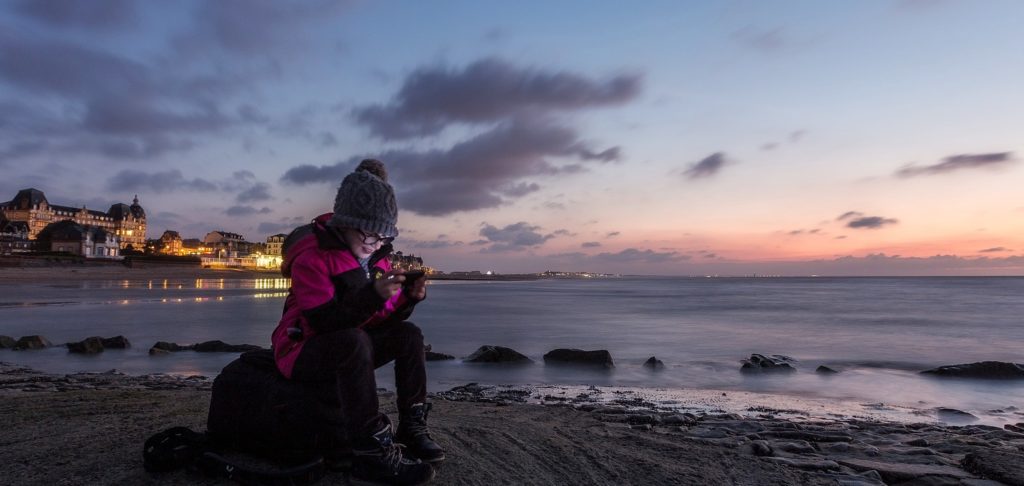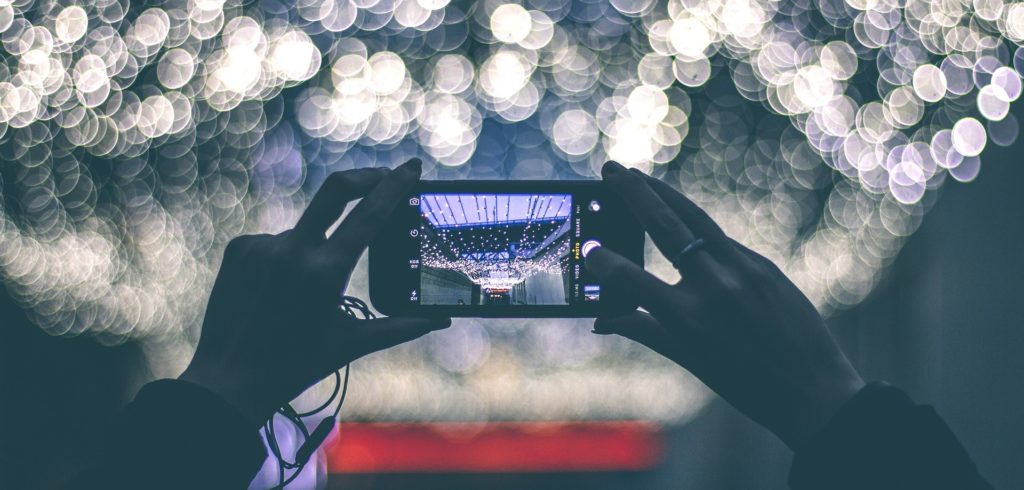How Social Media Can Decrease Happiness – Part 3: Losing the Moment

When we experience something enjoyable, without the intrusion of technology our enjoyment comes from the thing or the experience itself – the smell and taste of the coffee we’re drinking, the beauty and novelty of the city we’re visiting, the way we feel about our outfit and appearance, etc. The value comes from our own positive experience of the situation.
However, when we shift our attention from fully experiencing the moment through our own eyes to creating content for external eyes to see and appreciate, the source of our enjoyment also shifts to some extent. Our attention is no longer fully in the moment, in our own enjoyment and how we personally perceive the situation – our interest is now split between our experience and the experience of our virtual audience.
This split in attention and the consequent dilution of pleasure gained from the experience itself is two-fold: the first part occurs during the creation of the content and the second and more significant part occurs after we post it to social media.


Creating the Content
Imagine you visit something like a beautiful cathedral, a famous monument or even a cute cafe. One option is to really observe it, appreciate it, marvel at the details, bask in the ambiance and the feeling of being there, etc. – in other words, immerse yourself fully in it. However, what many of us do when we see something beautiful is immediately reach for our phone to take a picture. What ensues is not a full multi-sensory immersion in the pleasurable experience, but a change in focus from the moment itself to angles and lighting and posing as we try to get the perfect shot. Considering the limited time we usually have to spend in any one place, the “magic” and profoundness of the moment can be significantly diminished if we dedicate a significant part of that time to taking the perfect photo.
This being said, I know that for many people taking photos is a part of the fun of the experience and I’m not suggesting they should stop; I’m simply suggesting that in the pursuit of the perfect photo we sometimes give up part of the perfect moment.

Posting
After we post the photo to instagram or facebook, Twitter, Linkedin or wherever, something I call “like anxiety” often ensues, which is the rumination over how many likes our photo has received. This anxiety is normal because putting a part of our private lives in the public eye exposes us to the judgments of hundreds of our peers. Posting photos online is the virtual equivalent of standing on a chair in a crowded party and starting to sing or dance. You are launching yourself into the public’s attention and if the reaction isn’t positive to justify that exposure, you can end up feeling foolish, awkward, rejected, inadequate, etc.
Similarly, if the appreciation on our posted photo is low or even just less than we expected, we can start to wonder – what was wrong with my moment? Was it not impressive? Did I look bad? Do my friends think I’m annoying? etc. And although none of that may be true, the mere thought processes and doubts that inevitably accompany the posting of a photo, especially an unsuccessful one, can take something away from the joy of the experience itself. Our brain makes connections between related experiences, so if a particular moment was captured in a photo that caused us certain levels of preoccupation and anxiety, that disappointment can become associated with the experience itself, thereby diminishing its value to us.

Sharing moments with our friends and families via social media can be a lot of fun, but it’s a good idea to ask ourselves why exactly it is fun. If we simply enjoy sharing our pleasant moment with loved ones so that they can enjoy it too, wonderful. But if posting photos is fun because we enjoy the validation we receive from our social network about the value of the moment (of its beauty or of our beauty), then our own perception of that value will be to some degree dependent on our audience’s reaction. And if that audience doesn’t show much appreciation to the moment, then we may feel worse about it as well. By posting moments to social media we sometimes give part of the control over determining the value of those moments to other people. In that we way, we lose the full power to determine their value ourselves and the consequence of this can be enjoying them less or having a tainted memory of them. Sharing can be a great thing, but some special moments are worth saving for oneself.




Recent Comments